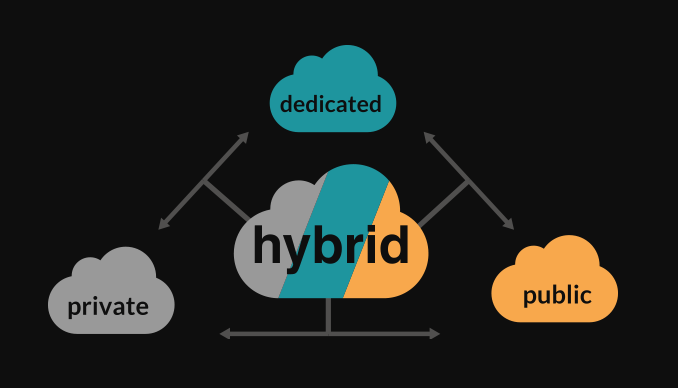Let me ask a question; Why Hybrid Hosting Is Becoming a Popular Cloud Hosting Solution around the world? Do you know that there’s currently a new term that’s getting thrown around out there in the tech world? It’s called “hybrid hosting.” Although most Chief Information Officers and other insiders are kind of familiar with it, to anybody with a passing involvement in Information Technology, it really sounds really unclear.
First and foremost, we’re overwhelmed with the word “hybrid” in all types of industries. Now the question is; what does the word “hybrid” mean? For me, my research shows that it simply means a mixture of two things only. The popular Reese’s Peanut Butter Cups are “hybrid.” Also Hybrid cars are hybrid, simply because they make use of mechanical engines and battery-powered motors. What that in mind, what will you say is hybrid hosting?
Furthermore, to make things a little more interesting, there are in fact two definitions of hybrid hosting that we’re going to commonly see online in white papers and cloud-related articles. One of the definition of the idea that hybrid hosting just means adding cloud services to existing on-site legacy systems.
Also, using a mix of internal remote vendor setups and physical equipment (an article and/or resource from TechWench provides a little more details on this concept). On the other hand, the other definition that’s probably dominant today is the idea of hybrid cloud hosting. The idea is that you’re taking part of one cloud hosting service, and part of another: precisely, a mix of private and public cloud solutions.
In point of fact, these two definitions as seen above have a lot to do with each other. Readers could say that the company’s domestic systems are the “private” cloud element and the remote cloud services are the “public” services. However, you’d be overlooking that some cloud organisations also deploy private cloud solutions for a single client that are remote to that client, are maintained at the provider’s workplace. Therefore, hybrid cloud hosting can actually come in several forms, where one part of the system is served in a different way than the other.
Adding On-Demand Services
As the IT systems will have it, one of the big value propositions of hybrid hosting includes the scalability of the cloud in general.
Public institutions and Businesses may have systems that work perfectly, but they need to provide for expansion and continues growth. Additionally, in these types of situations, finding solutions can be like refurbishing an old house. Let me ask; do you scrap the whole thing and build an entirely new structure? Or do you work to complement what’s already there with a new structure?
An addition remote cloud services to existing systems can simply solve this problem. There’s a Computer-Weekly article, where a writer Caldwell Tracey goes into detail about a hybrid project by Loughborough University, where leaders found reputable add-ons for the school’s existing data center. In a condition where a complete reconstruction wasn’t possible, a hybrid model added what the vendor, Logicalis, called “burst” capacity. This is to supplement existing server activity with on-demand data center resources, linking the two together through a government-funded academic wireless area network called JANET.
At this juncture, you can now see the interplay of private businesses, modern governments and vendors in providing hybrid solutions for Information Technology needs.
Bottom line is that Hybrid hosting is becoming a more common strategy for cloud hosting, offering benefits of both private and public cloud.







